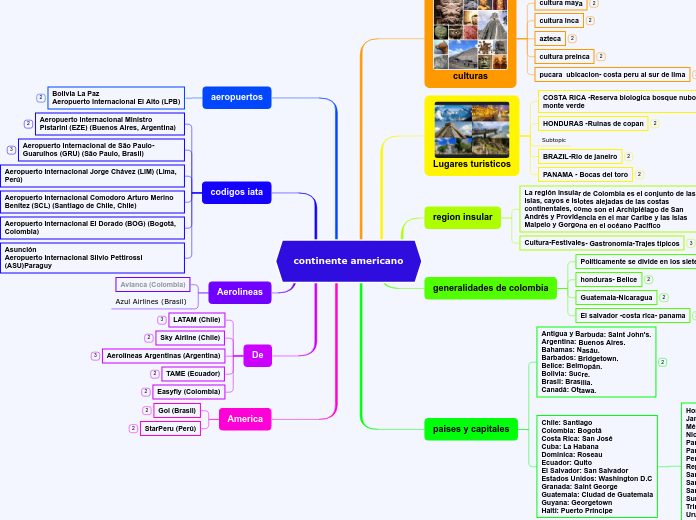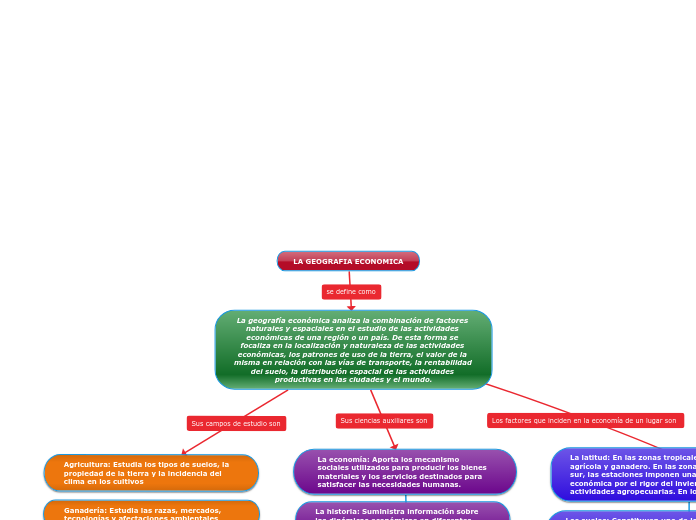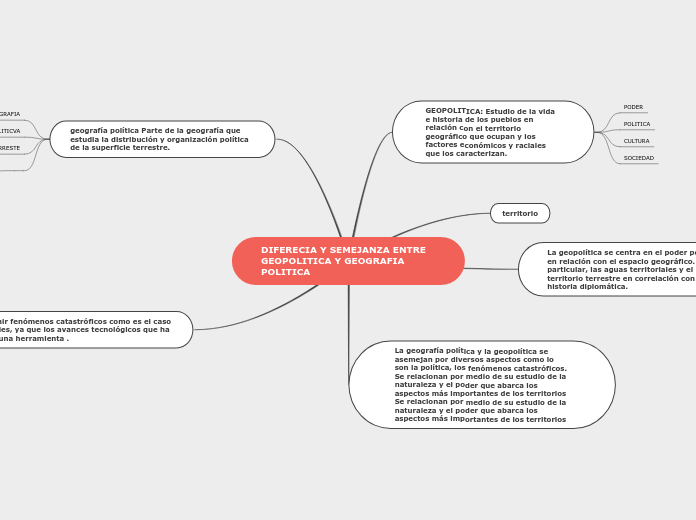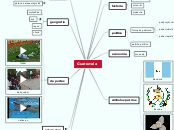continente americano
The part of speech is a category to which a word is assigned according to its syntactic functions. In English the main parts of speech are noun, pronoun, adjective, determiner, verb, adverb, preposition, conjunction, and interjection.
America
A conjunction is a word like 'if' 'but' or 'and' which is used to connect sentences or clauses together.
StarPeru (Perú)
Subordinating conjunctions are conjunctions that are used at the beginning of subordinate clauses. Some examples of these conjunctions are: although, after, before, because, how, if, once, since, so that, until, unless, when etc.
Although it was raining, I went out.
Gol (Brasil)
Coordinating conjunctions always connect phrases, words, and clauses. They are: for, and, nor, but, or, yet, so.
This stew is savory and delicious.
De
A preposition is one of the most exciting parts of grammar. A preposition is used to describe the location of something in relation to something else.
Easyfly (Colombia)
A group of words used with the force of a single preposition is called phrase preposition.
according to, by means of, owing to, with a view to, in place of, in front of, etc.
TAME (Ecuador)
Participle preposition consists of words that end in “ing”.
regarding, barring, concerning, considering, etc.
Aerolíneas Argentinas (Argentina)
When a preposition consists of more than one word, it is called double preposition.
into, within, upto etc.
Sky Airline (Chile)
Compound preposition consists of two or more words.
on behalf of, according to, in front of, from across, etc.
LATAM (Chile)
When a preposition consists of one word it is called single or simple preposition.
in, at, on, to for, of, from, up, after, over, under, with, etc.
Aerolineas
An interjection is used to express emotion in a sentence.
Think of other interjections!
Azul Airlines (Brasil)
Avianca (Colombia)
codigos iata
An adverb is used to describe a verb, but it can also describe an adjective or another adverb.
Adverbs normally help paint a fuller picture by describing how something happens.
Asunción
Aeropuerto Internacional Silvio Pettirossi (ASU)Paraguy
Aeropuerto Internacional Silvio Pettirossi (ASU)
Asunción
Especially, Specifically, Merely, Either
Aeropuerto Internacional El Dorado (BOG) (Bogotá, Colombia)
A lot, Little, Much
Aeropuerto Internacional Comodoro Arturo Merino Benítez (SCL) (Santiago de Chile, Chile)
The intensifiers strengthen adverbs adjectives and adverbs and down- toners make them weaker.
down-toners
Fairly, Rather
intensifiers
Extremely, Very
Aeropuerto Internacional Jorge Chávez (LIM) (Lima, Perú)
Just, Afterward, Soon, Currently
Aeropuerto Internacional de São Paulo-Guarulhos (GRU) (São Paulo, Brasil)
Always, usually, Never
Aeropuerto Internacional Ministro Pistarini (EZE) (Buenos Aires, Argentina)
Carefully, Slowly
aeropuertos
A numeral is a word or phrase that describes a numerical quantity.
Some theories of grammar use the word 'numeral' to refer to cardinal numbers that act as a determiner to specify the quantity of a noun, for example the 'two' in 'two hats'.
Bolivia La Paz
Aeropuerto Internacional El Alto (LPB)
One, two..
paises y capitales
An article is a word used to modify a noun, which is a person, place, object, or idea. Technically, an article is an adjective, which is any word that modifies a noun.
Chile: Santiago
Colombia: Bogotá
Costa Rica: San José
Cuba: La Habana
Dominica: Roseau
Ecuador: Quito
El Salvador: San Salvador
Estados Unidos: Washington D.C
Granada: Saint George
Guatemala: Ciudad de Guatemala
Guyana: Georgetown
Haití: Puerto Príncipe
Indefinite articles are the words 'a' and 'an.' Each of these articles is used to refer to a noun, but the noun being referred to is not a specific person, place, object, or idea. It can be any noun from a group of nouns.
Honduras: Tegucigalpa
Jamaica: Kingston
México: Ciudad de México
Nicaragua: Managua
Panamá: Ciudad de Panamá
Paraguay: Asunción
Perú: Lima
República Dominicana: Santo Domingo
San Cristóbal y Neives: Basseterre
San Vicente y las Granadinas: Kingstown
Santa Lucía: Castries
Surinam: Paramaribo
Trinidad y Tobago: Puerto España
Uruguay: Montevideo
Venezuela: Caracas
Unlike demonstrative pronouns, which point out specific items, indefinite pronouns are used for non-specific things. This is the largest group of pronouns. All, some, any, several, anyone, nobody, each, both, few, either, none, one, and no one are the most common.
None, Several
Antigua y Barbuda: Saint John's.
Argentina: Buenos Aires.
Bahamas: Nasáu.
Barbados: Bridgetown.
Belice: Belmopán.
Bolivia: Sucre.
Brasil: Brasilia.
Canadá: Ottawa.
It refers directly to a specific noun or groups of nouns.
The breakfast on my plate.
generalidades de colombia
A pronoun is a word that can be used in place of a noun, typically after the noun itself has already been stated.
El salvador -costa rica- panama
Relative pronouns are used to add more information to a sentence. Which, that, who (including whom and whose), and where are all relative pronouns.
Which, Where
Guatemala-Nicaragua
Interrogative pronouns are used in questions. Although they are classified as pronouns, it is not easy to see how they replace nouns. Who, which, what, where, and how are all interrogative pronouns.
Which, Who
honduras- Belice
Demonstrative pronouns are used to demonstrate (or indicate). This, that, these, and those are all demonstrative pronouns.
This, These
Políticamente se divide en los siete países
The personal pronouns are I, you, he, she, it, we, they. More often than not (but certainly not always), they replace nouns representing people.
He, They
region insular
An adjective is a word that's used to describe a specific noun and to provide more detail to the listener.
Cultura-Festivales- Gastronomía-Trajes típicos
Superlative adjectives demonstrate a higher level of comparison between entities.
Cultura
She is the prettiest princess.
La región insular de Colombia es el conjunto de las islas, cayos e islotes alejadas de las costas continentales, como son el Archipiélago de San Andrés y Providencia en el mar Caribe y las islas Malpelo y Gorgona en el océano Pacífico
Expresses a comparison between two entities or groups of entities in quality or degree.
He is taller than she is.
Lugares turisticos
A noun is defined as a person, place, thing or idea. Proper nouns always begin with a capital letter. Common nouns, which are general words, such as 'cars,' are not capitalized.
PANAMA - Bocas del toro
Compound nouns are words where two nouns have been stuck together to make a new noun. Compound nouns should be written as one word, without a hyphen.
Candlestick
BRAZIL-Rio de janeiro
A noun which refers to a group of things/people.
Family, Class
Subtopic
HONDURAS -Ruinas de copan
Countable nouns are nouns that can be counted, even if the number might be extraordinarily high.
Uncountable nouns are nouns that come in a state or quantity which is impossible to count; liquids are uncountable, as are things which act
like liquids.
Cats, Rain
COSTA RICA -Reserva biologica bosque nuboso monte verde
Proper nouns are the names of specific people or places. They should always begin with a capital letter.
Mary, Paris
culturas
A verb is an action word or 'doing' word that signifies movement in some way.
pucara ubicacion- costa peru al sur de lima
An auxiliary verb helps the main (full) verb and is also called a 'helping verb.' With auxiliary verbs, you can write sentences in different tenses, moods, or voices.
You have been practicing hard.
cultura preinca
A participle is a verb form that can be used as an adjective or to create a verb tense. There are two types of participles: Present participle (ending -ing) and Past participle (usually ending -ed, -d, -t, -en, or -n).
The winning athlete gets a trophy.
azteca
A modal is a type of auxiliary (helping) verb that is used to express: ability, possibility, permission or obligation. The main modal verbs in the English language are: can, could, may, might, must, shall, should, will, would.
I might go to the park if I get my homework done.
cultura inca
A linking verb connects the subject with a word that gives information about the subject, such as a condition or relationship.
You look exhausted after studying all night.
cultura maya
A verb with its own meaning: a verb that is not an auxiliary verb.
Create sentences
They have it.









